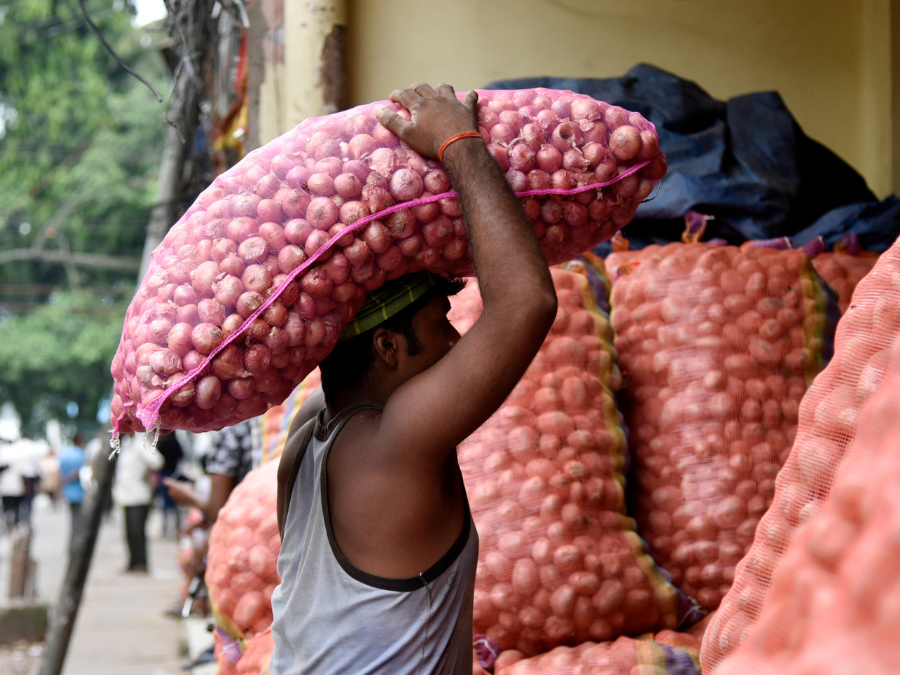
India has implemented a 40% levy on the export of onions due to higher domestic prices.
The Ministry of Finance said the duty has been imposed to improve the domestic availability of the vegetable. The tax will be effective immediately and continue until 31 December.
“The export duty will make Indian onions more expensive than those from Pakistan, China, and Egypt. This will naturally lead to lower exports and aid in reducing local prices,” Ajit Shah, an exporter based in Mumbai, told Reuters.
The tax comes as part of Prime Minister Narendra Modi’s efforts to ensure domestic availability and cool inflation before key state elections later this year.
According to Reuters, the average wholesale onion price in key markets jumped nearly 20% from July to August, to Rs2,400 ($28.87) per 100kg on concerns that erratic rainfall would lead to lower yields.
In July, retail inflation in India reached a 15-month-high of 7.44%, mainly due to a spike in food prices. The inflation rate based on Consumer Price Index (CPI) stood at 4.81% in June 2023 and 6.71% in July 2022. Previously, high inflation was recorded at 7.79% in April 2022.
Food prices, which make up about half of the inflation basket, rose 11.51%.
Last month, India banned exports of non-basmati white rice in another effort to lower local food prices.
“The domestic prices of rice are on an increasing trend,” the Ministry of Consumer Affairs, Food and Public Distribution of India said in a statement, noting retail prices have increased by 11.5% over 12 months and 3% in the past month.
Non-basmati white rice constitutes about 25% of India’s total rice exports, according to the Ministry.
The efforts to dampen price rises are being made before the upcoming El Niño weather event which will lead to record heat and rainfall levels.
